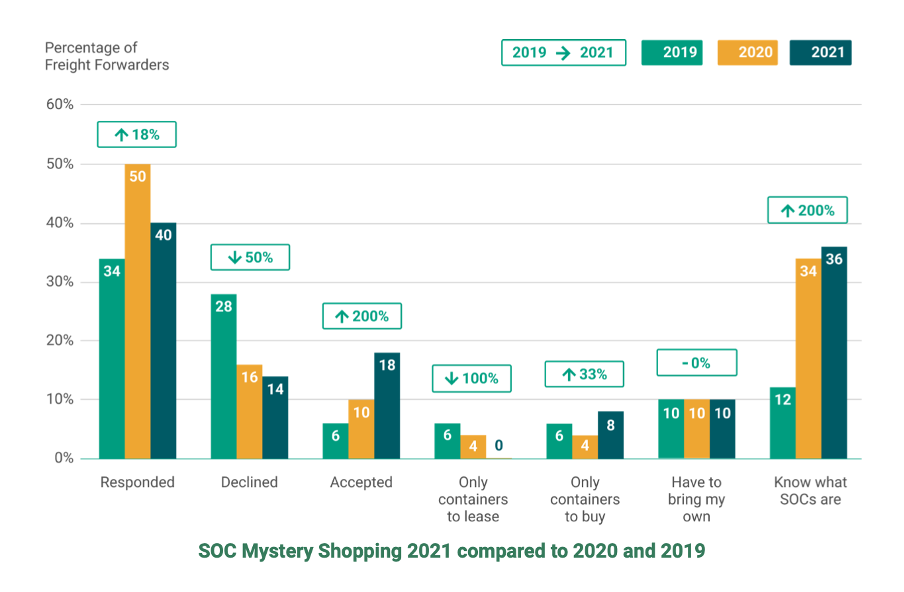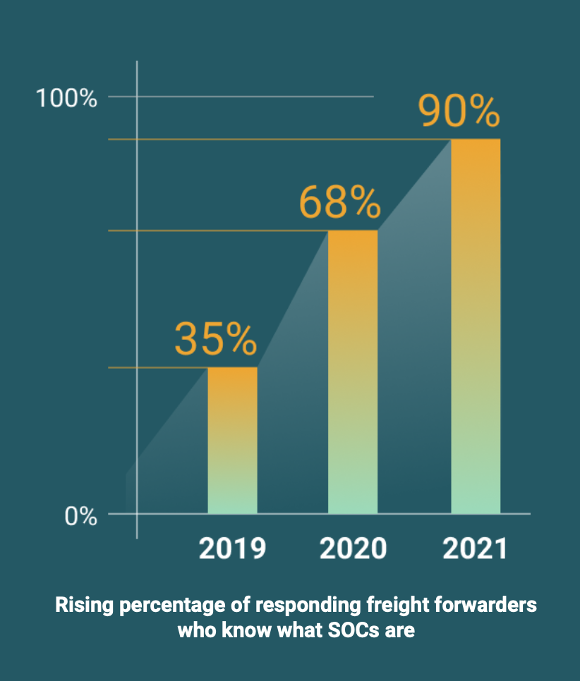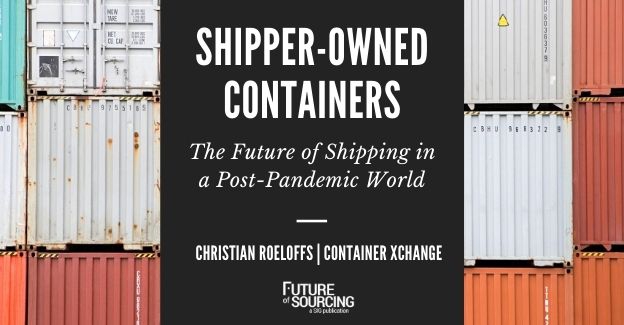The disruptions in the shipping container industry driven by COVID-19 have created the need for alternate sourcing strategies says Christian Roeloffs, Founder and CEO of Container xChange. One of these strategies is Shipper-Owned Containers (SOCs), which can lower costs, increase flexibility and offer more reliability.
Before the onset of the pandemic, the shipping industry operated with an abundance of capacity at par with the demand patterns. More than 80% of the market needs were met by three major shipping alliances — 2M (Maersk Line and Mediterranean Shipping Co.), THE Alliance (Ocean Network Express, Hapag-Lloyd and Yang Ming), and OCEAN (CMA CGM/APL, Cosco Shipping and Evergreen Line).
But the pandemic plunged the world into a desperate tussle between supply and demand. Trade flows to and from major hotspots were halted and shippers scrambled through other options for sourcing their goods.
What are these alternate sourcing strategies? What drove this shift of preference in the industry? And how long will this shift sustain in a post-pandemic world? We discuss these questions and more up ahead in this article.
Shipping Disruptions Caused by COVID-19
The pandemic had socio-economic repercussions globally, more so in the international trade and supply chain networks. The busiest commercial ports in regions of China and the U.S. had restricted vessel flow. This resulted in a huge setback to global trade operations.
- Container shortages and disruption in the entire supply chain haunted shipping companies for a long time (and continue to do so).
- Predicting the availability of equipment became harder due to fluctuating demand trends, especially on previously busy routes.
- Shippers were also burdened with a hike in detention and demurrage charges at major ports globally.
- On the sustainability front, the shipping and logistics industry was exploring alternate sources of fuel (with low sulfur content). So, vessels were undergoing retrofitting. But the process came to a standstill due to the low supply of workforce during the pandemic, thus further hampering vessel flow.
- Other challenges posed by the pandemic included labor shortages, excessive surcharge by carriers and lack of transparency across the supply chain.
This made over 75% of freight companies across the world rethink their existing business and operational strategies, especially related to sourcing.

A Need to Change Sourcing Strategies
As the regulatory bodies continued talks on adapting and tweaking existing policies to ease trade restrictions, shippers and freight forwarders also deliberated ways to bridge this burgeoning gap of supply and demand.
At the center of these deliberations was a heightened interest in Shipper-Owned Containers (SOCs).
Acceptance of SOCs by major freight forwarders grew by 200% over the past three COVID-driven years. (Source: Mystery Shopping SOC Report 2021 by Container xChange)
Why? Because SOCs offer shippers the flexibility of managing equipment supply and saving costs on inland transportation. As equipment supply slowed down due to disruptions by COVID-19, SOCs paved the way for faster shipments.
A Shift Toward SOCs in the Shipping Industry
“Due to the flexibility and availability of SOC equipment, the operator can work on new routes, and receive and release equipment for loading in regions convenient for them,” said Alexander Gnedov, CEO of Conway.
Although shipping companies try to make Carrier-Owned Contrainers (COCs) available for major routes, supply has seen a major decline as compared to the pre-COVID levels. In a recent survey conducted by Container xChange in Jan 2022, 25% of the 500 freight industry respondents considered using SOCs for sourcing in 2022.

SOCs are becoming more acceptable in the industry due to three major reasons: cost, flexibility and convenience. Here’s why shippers prefer using SOCs for their daily operations:
- Shipper-owned containers (SOCs) are more reliable as compared to COCs because their availability is predictable. SOCs are also available in landlocked regions or smaller ports.
- The cost of loading and transporting goods to the equipment location adds up to the freight costs of the shipper. This problem is overcome by using SOCs. Shippers can easily plan their routes, negotiate with trucking companies and optimize their costs.
- SOCs are also an environmentally friendly option because they reduce empty truck runs and fuel waste.
- Another compelling reason is the low detention and demurrage costs. Shippers often face delays at the port, due to customs clearance, lack of space in warehouses or even vessel traffic. With SOC containers, costs arising out of such delays do not apply.
- SOCs can help shippers avoid extra freight charges when shipping to surplus locations. COCs are often priced higher because forwarders don’t want to carry the cost of empty container moves from such locations.
And yet…
SOCs Are Still Far From Common Usage
There’s a steep increase in awareness around SOCs in the shipping industry.
In the mystery shopping research conducted by xChange, only 35% of respondents knew of SOCs in 2019. This number grew to 90% in 2021. However, acceptance rates still do not match the awareness rates of SOCs.
Now, as we enter a post-pandemic recovery phase, supply trends are expected to rise again. But, we are yet to see what kind of impact it will have on SOC acceptance in the industry.
According to industry stalwarts, demand for SOCs will flourish but there’s still a need for a trained team to manage such shipments. Management effort and cost can hike easily in case of return trips. Thus, shippers need to streamline their process flows to get full advantage of SOCs.
The market is still volatile and tiptoes around these alternate sourcing strategies. On some days, you may easily get quotes for SOC shipments. On others, you will have a hard time finding slots because freight companies prefer transporting their own equipment.
Although there are still many freight forwarders who do not offer options for using SOCs, the scenario is changing rapidly.
Summing Up
With the industry getting used to a new normal, there are many adaptations to be made. However, as we’ve seen in the past years, the shipping industry is growing and evolving as time goes.
With these new challenges, new technologies and container sourcing strategies are becoming increasingly important for the companies to rethink. SOC containers are just one of those solutions that are growing in increasing popularity in the shipping industry.









